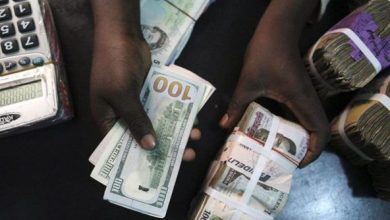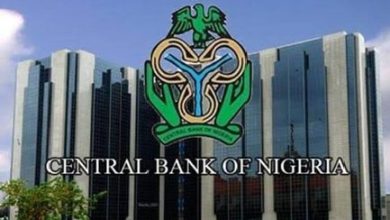CBN Injects $580 Million into FX Market Amid Naira Pressure, Rising Investor Confidence
The CBN injected $580 million into Nigeria’s FX market in May to stabilize the naira amid rising dollar demand.
While the move brought short-term relief, experts warn it may strain reserves without long-term reforms.
In a determined effort to stabilize the naira and reinforce confidence in Nigeria’s foreign exchange (FX) market, the Central Bank of Nigeria (CBN) injected $580 million into the market during May 2025. This intervention came against the backdrop of dwindling external reserves, which dropped to $38.045 billion by month-end, sparking debates about the long-term viability of such currency support measures.
Market analysts observed that the move was largely driven by growing demand for the dollar and weakening oil revenues factors that had caused the naira to depreciate significantly, reaching as low as N1,614 to the dollar in early May. The CBN’s timely response, combined with capital inflows from exporters and foreign portfolio investors, helped to ease pressure on the local currency and improve overall liquidity.
According to financial reports from AIICO Capital Limited, the FX market witnessed relative stability throughout May. The naira traded within a narrower band of N1,575 to N1,610 per dollar and closed the month at N1,586.15/$1 a slight but noteworthy 66-basis-point improvement compared to April figures.
The apex bank’s intervention strategy focused on direct dollar sales to licensed banks, a policy tool that has become central to its effort in managing short-term exchange rate fluctuations. While the injection of forex eased volatility and reduced panic among market participants, economic experts warn that this approach may be unsustainable if foreign exchange inflows do not increase to replenish reserves.
“The CBN has made it clear it is ready to protect the naira,” one analyst commented. “However, the question remains how long can the central bank sustain this level of support without eroding the country’s reserve base?”
Despite these concerns, Nigeria recorded some notable financial milestones in May. The federal government fully settled its debt to the International Monetary Fund (IMF), reducing the outstanding obligation from $3.54 billion in 2020 to zero. This debt clearance has been hailed as a significant achievement, bolstering the nation’s credit profile.
Further enhancing investor confidence, international ratings agency Moody’s Investors Service upgraded Nigeria’s sovereign credit rating from Caa1 to B3 with a stable outlook. The upgrade was attributed to ongoing economic reforms, including the removal of fuel subsidies, improvements in revenue mobilization, and progress in exchange rate liberalization under President Bola Ahmed Tinubu’s administration. Additionally, Nigeria’s local currency ceiling was raised to Ba3, while its foreign currency ceiling was upgraded to B2.
Another supportive factor has been the uptick in diaspora remittances. Data from the Central Bank showed that remittances through International Money Transfer Operators (IMTOs) surged by 44.5% in 2024, totaling $4.76 billion up from $3.30 billion in 2023. These inflows have played a critical role in supporting the FX market and boosting the country’s external liquidity buffer.
Nevertheless, pressures persist in the parallel market, where the naira closed at N1,617.50 per dollar in May, an N11 drop, highlighting continued strong demand for foreign currency outside official channels.
Experts agree that while the CBN’s interventions have brought short-term relief, Nigeria must focus on sustaining deeper structural reforms, expanding non-oil export revenue, and attracting long-term foreign investments to ensure lasting stability in the foreign exchange landscape.



